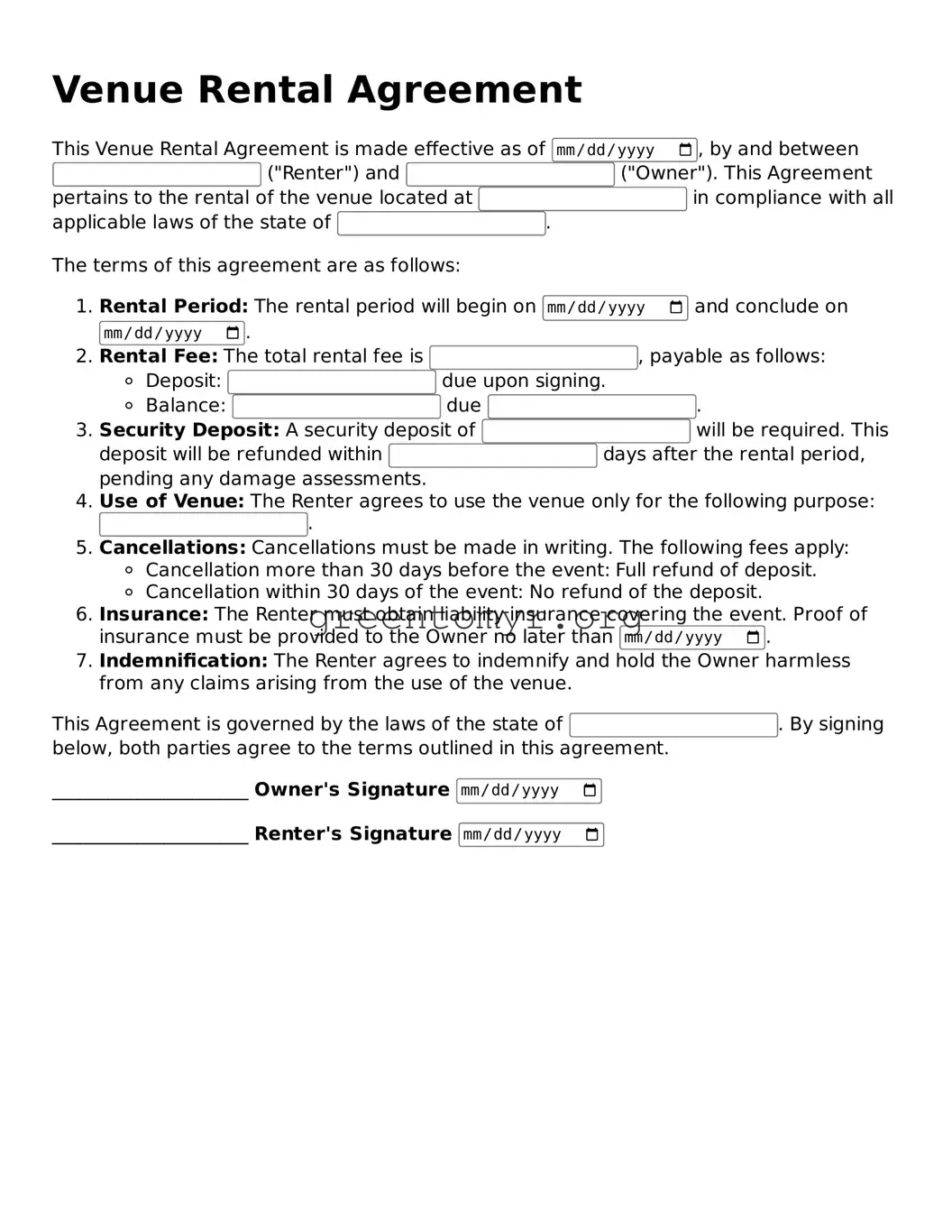When completing a Venue Rental Agreement form, individuals often make several common mistakes that can lead to misunderstandings or disputes later on. One frequent error involves failing to provide accurate contact information. This mistake can create challenges in communication between the venue owner and the renter. Ensuring that all phone numbers and email addresses are correct is crucial for smooth interactions.
In addition to contact information, individuals sometimes overlook the importance of reading the terms and conditions thoroughly before signing. The details in these agreements may contain essential information regarding deposits, cancellation policies, and liability. A lack of understanding in these areas can result in unexpected fees or conditions that are not favorable to the renter.
Another mistake involves neglecting to specify the rental period clearly. Renters should state the exact start and end times of the event, including any necessary setup and cleanup periods. Failing to provide this information may lead to confusion and potential disputes over billing and access to the venue.
Moreover, individuals might not consider the capacity limits established by the venue. When renting a space, it is essential to ensure that the number of attendees does not exceed the venue's capacity. Ignoring this can lead to safety issues and can result in additional fees or cancellation of the rental agreement.
Some renters also forget to discuss additional services that may be required. If a rental agreement includes catering, audiovisual equipment, or other amenities, individuals should ensure these services are confirmed in writing. Not addressing these aspects upfront can lead to last-minute complications.
Furthermore, individuals might fail to review the fee structure carefully. This includes understanding the total cost, any required deposits, and what payment methods are accepted. Being unaware of the financial commitments can place a strain on the event planning process.
Renter's insurance is another often overlooked aspect of the agreement. Some venues require proof of insurance covering potential damages that may occur during the rental period. Not being prepared with adequate insurance can result in losing the reservation, along with any related payments.
Additionally, providing an incomplete guest list can lead to issues on the day of the event. Venues may have specific requirements regarding guest counts for catering or seating arrangements. Therefore, making sure this list is detailed is essential for a successful event.
Finally, individuals sometimes disregard the importance of keeping a copy of the signed agreement. Having a copy on hand allows renters to refer back to the terms should any questions or issues arise. This simple step can help clarify expectations and responsibilities throughout the rental period.
